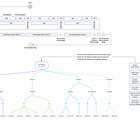Real Skills / Data, Opinion, Decisions / Safest thing about SAFe
Welcome to 📮Monday TPM Field Dispatch 008 - Shortform thoughts on tech program management + curated content for further exploration, delivered every Monday to your inbox to kickstart your week.
1️⃣ “Real” Skills
Seth Godin had a phenomenal blog post on TED website that spoke to me on so many levels (see link below).
Soft skills are the real magic of Great Technical Program Managers.
Forget the Emotional Intelligence and EQ and other mumbo jumbo. At its heart, it's about communicating with empathy, humanity, clarity, and understanding.
All the best TPMs I worked with were the perfect blend of both technical hard skills and these "real" soft skills that made them seem indispensable to the organization.
We give too little respect to the other skills when we call them “soft” and imply that they’re optional. What actually separates thriving organizations from struggling ones are the difficult-to-measure attitudes, processes and perceptions of the people who do the work. - Seth Godin
I would go so far to argue that you can achieve a lot with focusing on these leadership skills as a TPM.
In the TPM community, this line of thinking is often linked with "are you little t or capital T?" Again, we do the same thing that Seth talks about in his piece (link below). The picture being painted is that somehow you must neglect the hard skills in order to achieve these soft skills.
I never know what I might learn from the person sitting across from me, or on my cross-functional team, or the person I just had an argument with about prioritization, or the conflict unfolding in front of me between two teams.
My advise - to get real good at these "real" skills, be more observant. Listen more, act judiciously.
Above all - just be a decent human in difficult and tense moments. That is a hallmark of a truly great leader and TPM.
Further Reading: Let’s stop calling them “soft skills” — and call them “real skills” instead
2️⃣ Data, Opinion, Decisions
I have been thinking about this notion of data driven vs opinion driven. I worked in organizations which felt entirely opinion driven (Apple) and those that felt entirely data driven (Nike).
This dichotomy between data and opinion, I struggle with. Why? Don't you need data to form an opinion.
Even our experiences - wins or fails - are data points that inform our future opinions for future programs.
The other problem with data versus opinion is that data is numbers and most people can present numbers. For opinions, your position within the organization and your influence matters a lot.
Have you ever seen how some leaders never have to back up their opinions while others need entire business cases built out?
My advice to any TPM struggling with this:
Expand your definition of data in data driven (your past experiences and program experience count as data points)
Use data to inform your opinions.
Ask yourself - is data more valuable here or opinion?
Learn when to ignore data and when to ignore opinion.
I may need to write a longer essay on this in the future. 😉
3️⃣ The safe thing about SAFe
We all like to dunk on Scaled Agile. Yes, SAFe is horrible. But, I do think there is one thing that is safe about SAFe that I wish more product development teams and organizations used especially those with longer release cycles - Program Increment Planning.
Okay, before you brand me a SAFe apologist, I am talking about the spirit of Program Increment Planning, not implement it in its purest form.
Regular replanning after a certain amount of progress is in my opinion core to being an agile organization. We did replanning at Apple, we did at Google, I am pretty sure that all of organizations already do this but don't know it or call it something different.
The way to build a long release/program - 6wks milestones spaced out by a cool off/replanning period to recalibrate, review demos, and make changes to plans.
For your next big release - try baking in proper lightweight replanning spread out across the development timeline and see how it changes things for you.
Further Reading: I have visualized in detail how Apple plans its iOS, macOS, watchOS, iPadOS release trains in a previous premium post. Check it out to see how replanning plays a big part in the development process.
How was this week’s newsletter?
P.S.
Cohort 2 of my course Become A Great Technical Program Manager is Open for Enrollment
It took me years and many difficult projects at places like Apple, Google, Nike to understand what it means to be "Great".
😁 Good news for you, you won't have to spend years. Become a standout TPM in a few hours. Learn the skills and knowledge needed to gain senior leadership's trust to lead large cross-functional programs and take your career to the next level.
More real world examples.
More case studies.
More discussions.
More deep dive into topics like Systems Philosophy, Influence, Shape of Power, approaching complex technology and much more.
Now 2 Days long / 6-8 hours in total (Cohort is scheduled for July 29-30).
Course Fee: $499.
🚨 Spots are limited, don’t miss this chance → 🚀 Click here to enroll today.
If you enjoy and love reading what I write, perhaps you know someone who could also enjoy and love reading these essays and dispatches. Share this with your friends and colleagues and lets grow together. 🙏 ☺️ ❤️
You can suggest topics or questions for me to write about in the future. It could be something you are curious about or maybe something you're struggling with right now.




